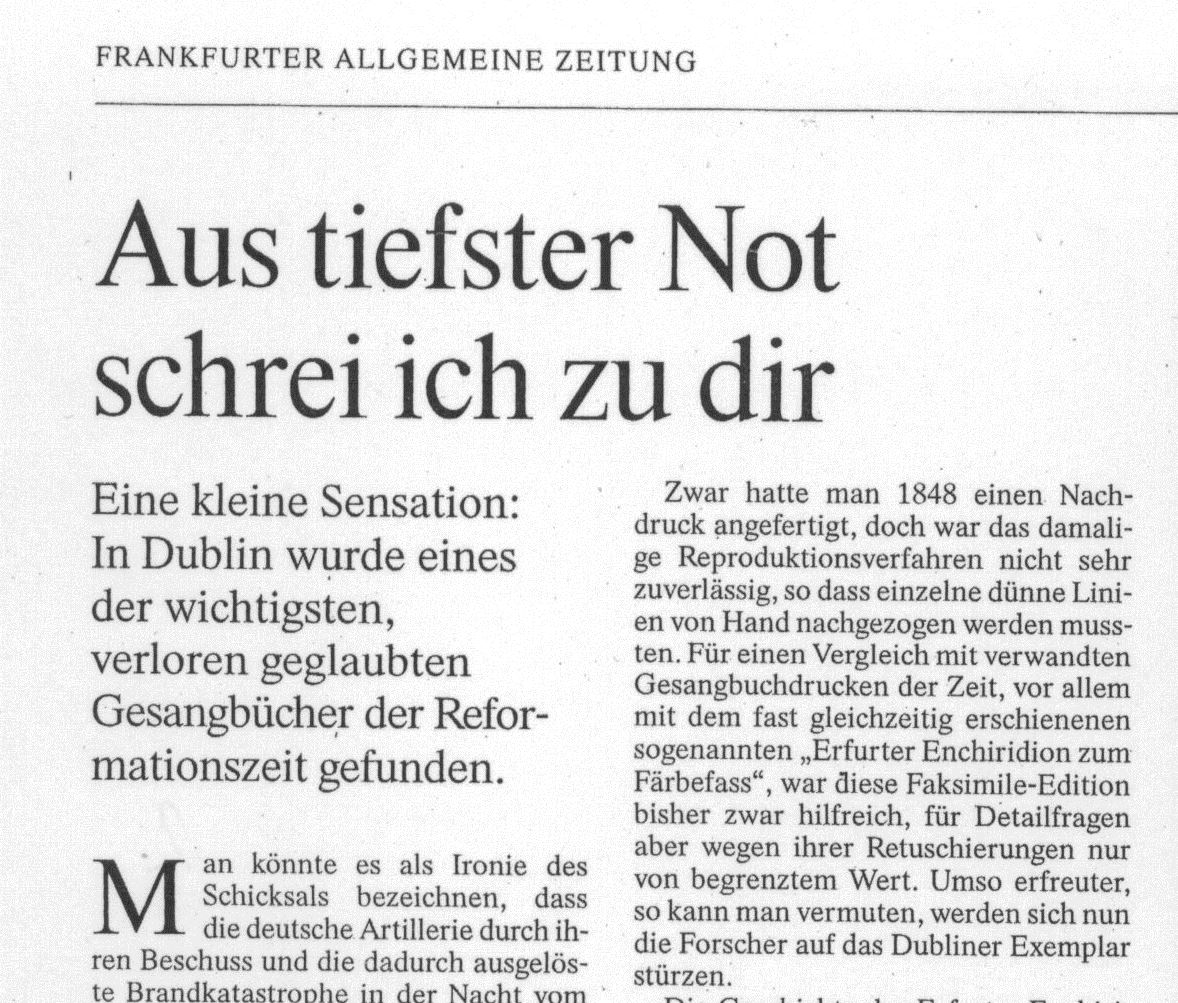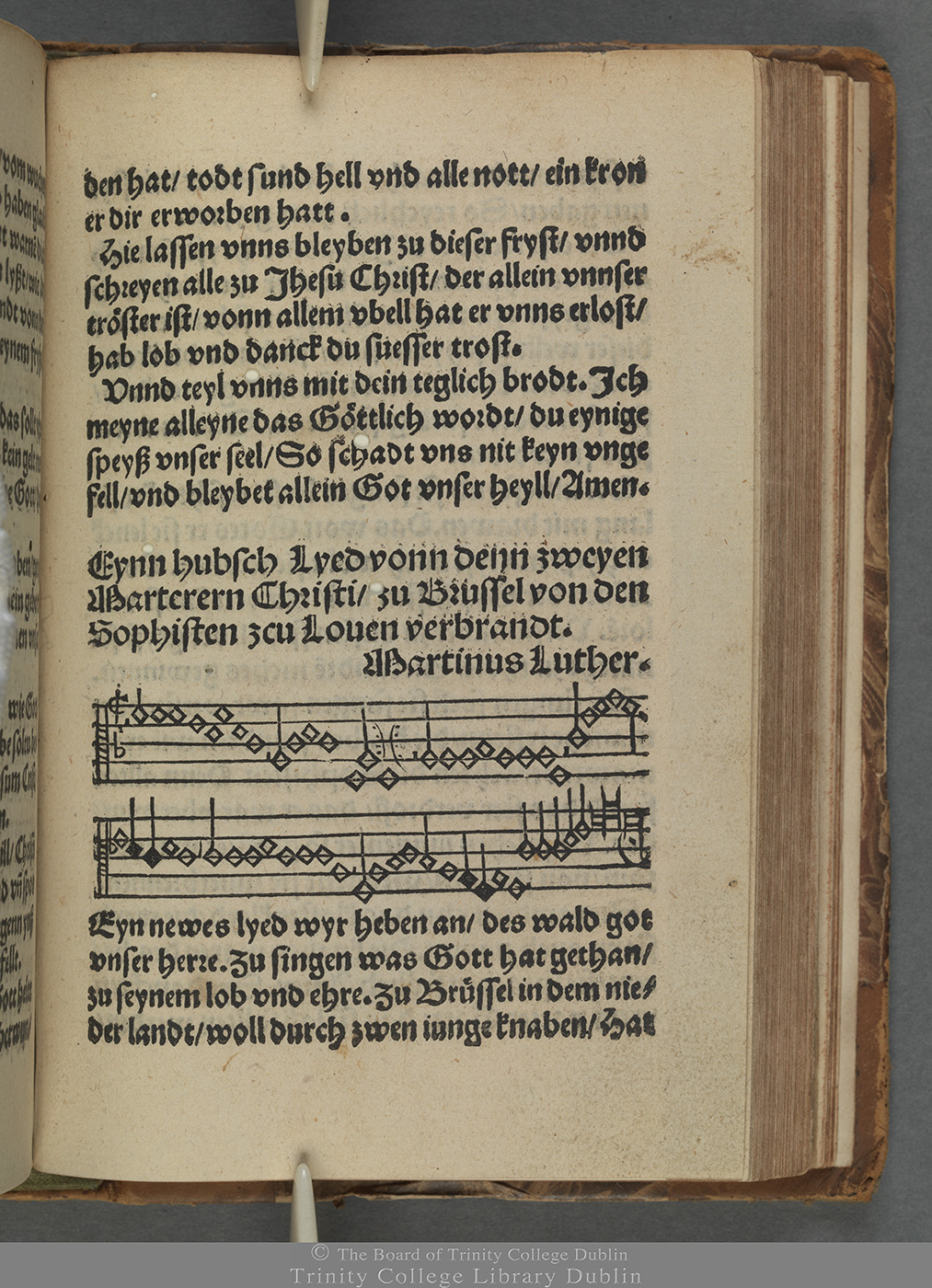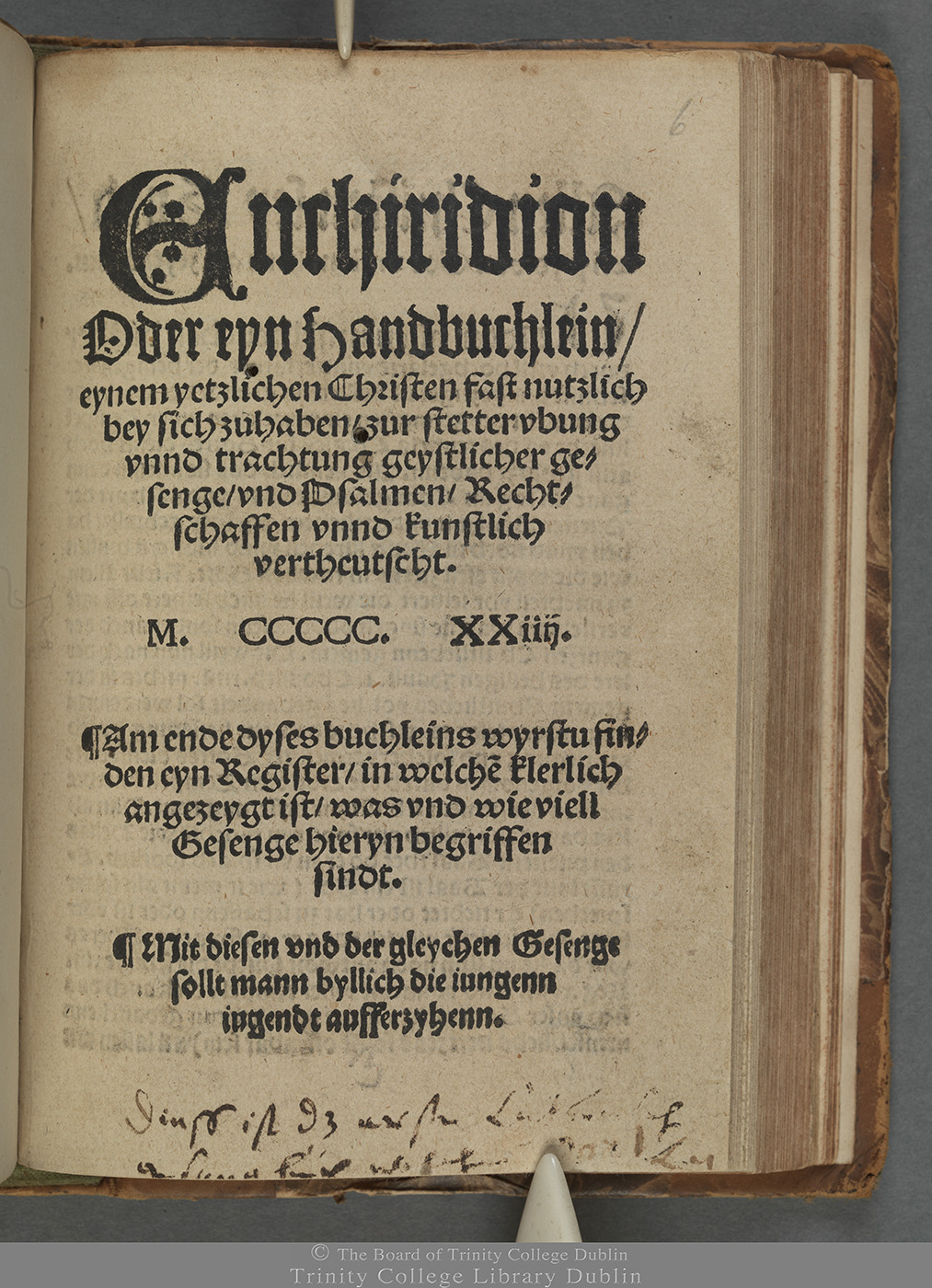
Rare book collections don’t often make the headlines of foreign newspapers, and when they do it is usually for the ‘wrong’ reasons – a spectacular theft, or catastrophic destruction due to fire, flood or earthquake. So it was all the more surprising to find a story in the Frankfurter Allgemeine Zeitung on 19 June last year describing a pamphlet shelved in the Long Room of Trinity College Library in Dublin as “a small sensation”.
The pamphlet in question is Enchiridion oder eyn Handbuchlein eynem yetzlichen Christen fast nutzlich bey sich zuhaben zur stetter vbung vnnd trachtung geystlicher gesenge vnd Psalmen [Enchiridion or little handbook, quite useful for a contemporary Christian to have with him for continuous practice and contemplation of spiritual songs and psalms] (TCD shelfmark C.pp.37 no.6). Not exactly a catchy title, but this is nevertheless a very significant item, being the first published collection of Lutheran hymns.
Two editions of the Enchiridion were published almost simultaneously in 1524 by two competing Erfurt printers, Johannes Loersfeld and Matthes Maler. Scholars surmise that Maler copied his version from Loersfeld’s incomplete galley proofs (which he may even have stolen!). Both editions show signs of haste in their production so it is likely that they were issued under pressure in order to cash in on strong current demand. The Maler edition contains 26 hymn texts and 15 tunes, the majority written by Martin Luther.
And why is this “a small sensation”? These paper-bound hymnals were intended to be carried around and used regularly, so few survived for long. Only two remaining copies of the Loersfeld edition are known – held in libraries in Goslar (in central Germany) and Strasbourg. It was assumed that the last surviving copy of the Maler edition was destroyed by fire when the City Library in Strasbourg was bombarded during the Franco-Prussian War in August 1870. Luckily this copy had been reprinted in facsimile in 1848, so its contents were still available even if the quality of the reproduction was poor.


However, since 1841 TCD has also owned a copy of the Maler edition of 1524, purchased as part of a large collection of publications from the Reformation period. For unknown reasons, this copy is not recorded in RISM and was therefore unnoticed by international scholars. This came to light during research for the current Long Room exhibition ‘In Tune: a millennium of music in Trinity College Library’. The book has now been digitised and can be viewed online.
Roy Stanley, Music Librarian, Trinity College Library